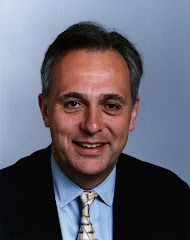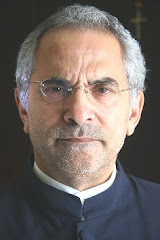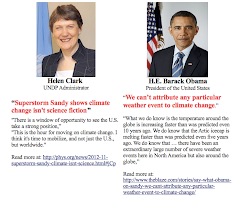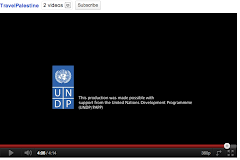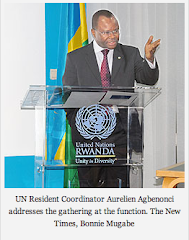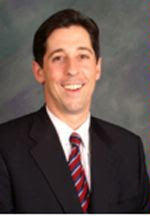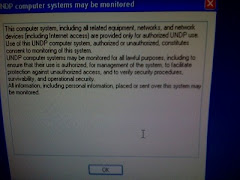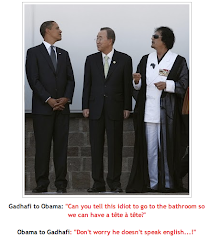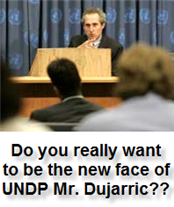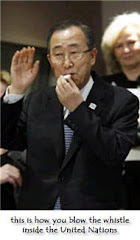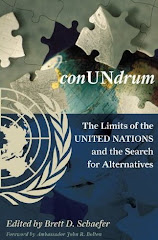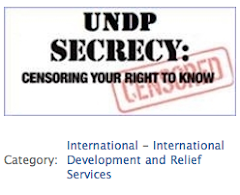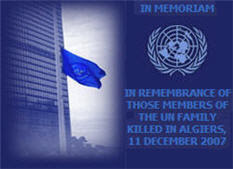Tuesday, March 19, 2013
Canada is worst than Africa on food security. United Nations will assist Harper's government in improving food deficit
Click here for this in full @ : http://rabble.ca/news/2013/03/reducing-canadas-food-security-deficit-un-reports-outlines-key-policy-recommendations
Reducing Canada's food security deficit: UN report outlines key policy recommendations
Last week, the Canadian Centre for Policy Alternatives (CCPA) released its annual Alternative Federal Budget (AFB), which contains a number of recommendations around food and nutrition programs. The government's federal budget will be released late this week, and we'll have full coverage including reaction from the CCPA and other civil society organizations.
Earlier this month, the United Nations' Special Rapporteur on the Right to Food, Olivier De Schutter, also made a number of recommendations for addressing food security in Canada. In a previous article, Hannah Renglich provided an overview of De Schutter's report, with a particular focus on his recommendations regarding Indigenous peoples. Here, she analysis the four other main sections of the report.
Olivier De Schutter's report contains five subsections both commending Canadian civil society and government for many progressive and positive actions toward realizing the Right to Food, while also criticizing shortcomings and putting forward many recommendations for improvement through both a legal and policy framework.
While De Schutter suggested that Canada is behind in Economic and Social Rights protection, the Canadian Charter of Rights and Freedoms and Canadian Human Rights Act could be used to protect the Right to Food.
Labels:
canada,
CCPA,
Food Security,
Harper,
Special Rapporteur,
United Nations
If you can't trust the thief, whom can you trust? DFID entrust UNDP with the management of IATI
CORRUPTION BRITISH STYLE
FROM TODAY UNDP,
MANAGES THE SYSTEM THAT MONITORS (AMOUNG OTHERS)
HOW TRANSPARENT IS ...UNDP
The International Aid Transparency Initiative (IATI) will have a new set of hosts, decided by the steering committee yesterday in Paris.
The UNDP, Sweden, UNOPS, Ghana and Development Initiatives, will work as a consortium and share responsibility for hosting IATI. The Consortium was chosen because the steering committee believes it represents the multi-stakeholder nature of IATI, builds on existing experience to offer continuity and adds value because of its strong networks.
Clarification on roles and responsibilities, financing and working arrangements with the OECD on the common standard, will be finalised before the handover (likely to be in autumn)
The UK’s Department for International Development (DFID) has hosted IATI since 2009, supporting its development, financially and institutionally, and promoting the Initiative worldwide.
UNDP against US Second Amendment: - sponsores NGO who trained African countries how to vote in upcoming Arms Trade Treaty
Click here to read this in full @ Fox News: http://www.foxnews.com/world/2013/03/15/paid-to-play-anti-gun-group-teams-with-un-to-prep-african-countries-for-arms/#ixzz2NzI7V6Ur
A week before it opens a treaty conference to impose worldwide limitations on arms sales, the United Nations co-hosted and paid for a series of meetings involving 48 African nations and an anti-gun group that espouses much greater national and international control of firearms, including registration of small arms and ammunition.
The co-host of the gathering in the Ethiopian capital of Addis Ababa was a multinational “civil society” network known as IANSA ,
which calls itself the “global movement against gun violence,” and aims
to build a coordinated network of organizations “to stop the
proliferation and misuse of small arms and light weapons,” and “make
people safer by reducing demand for such weapons, improving firearm
regulation and strengthening controls on arms transfers.”
,
which calls itself the “global movement against gun violence,” and aims
to build a coordinated network of organizations “to stop the
proliferation and misuse of small arms and light weapons,” and “make
people safer by reducing demand for such weapons, improving firearm
regulation and strengthening controls on arms transfers.”
U.S. members of the international network include Amnesty International, the Brady Campaign to Prevent Gun Violence, and the Law Center for Smart Gun Laws, which on its website decries a 2008 Supreme Court decision upholding the right of individual Americans to keep a gun in their home for self-defense as “radical.”
A week before it opens a treaty conference to impose worldwide limitations on arms sales, the United Nations co-hosted and paid for a series of meetings involving 48 African nations and an anti-gun group that espouses much greater national and international control of firearms, including registration of small arms and ammunition.
The co-host of the gathering in the Ethiopian capital of Addis Ababa was a multinational “civil society” network known as IANSA
 ,
which calls itself the “global movement against gun violence,” and aims
to build a coordinated network of organizations “to stop the
proliferation and misuse of small arms and light weapons,” and “make
people safer by reducing demand for such weapons, improving firearm
regulation and strengthening controls on arms transfers.”
,
which calls itself the “global movement against gun violence,” and aims
to build a coordinated network of organizations “to stop the
proliferation and misuse of small arms and light weapons,” and “make
people safer by reducing demand for such weapons, improving firearm
regulation and strengthening controls on arms transfers.”U.S. members of the international network include Amnesty International, the Brady Campaign to Prevent Gun Violence, and the Law Center for Smart Gun Laws, which on its website decries a 2008 Supreme Court decision upholding the right of individual Americans to keep a gun in their home for self-defense as “radical.”
Monday, March 18, 2013
UNDP and GEF spend millions in solar panels in Botswana, with selected private sector companies profiting from it
Click here for the full article on this @: http://thepatriot.co.bw/?p=1994
Solar energy: Panacea to Botswana’s power woes?
ISAAC PINIELO
With an average of 285 days of sunshine a year, Botswana is a country where solar power can technically flourish. According to the department of Meteorological Services, daily average sunshine duration ranges from 9.9 hours in summer to 8.2 hours in winter. Two or more consecutive cloudy days are uncommon, and far between. This makes solar an energy source of vast potential, and ideal for both urban and rural areas on the country, especially during these times of serious power shortage. In an act of recognition and confirmation of this potential, the Botswana Energy Master Plan was prepared for the Ministry of Minerals, Energy and Water Resources committing to the provision of basic household needs to all strata of society.
This commitment extends to the provision of these households’ energy needs. Renewable energy has been identified as the most appropriate source of affordable, convenient and safe energy. In addition, the Botswana government through its partnership with its French counterpart signed a power deal where the utility companies Botswana Power Corporation (BPC) and France’s Electricite de France (EDF) will help in providing solar power to remote areas that are out of the power grid. As a result, the BPC Lesedi’s rural solar electrification project, supported by EDF, was officially launched in 2011. BPC Lesedi (Pty) Ltd was formed in 2008 for the purpose of rolling out the Renewable Energy-based Rural Electrification Project. The project is a collaborative effort between the government of Botswana, the United Nations Development Programme (UNDP) and the Global Environment Facility (GEF).
UN Development Program Head Slams Drug War
Click here for this in full @ : http://www.thedailychronic.net/2013/16277/un-development-program-head-slams-drug-war/

Former
New Zealand prime minister and current head of the UN Development
Program Helen Clark (right) has toughly criticized the reliance on
criminal justice approaches in the global drug war. (file)
UNDP head Helen Clark’s remarks ahead of the presentation of the organization’s 2013 Human Development Report came in a pre-ceremony interview with Reuters.
“To deal with drugs as a one-dimensional, law-and-order issue is to miss the point,” Clark said. “Once you criminalize, you put very big stakes around. Of course, our world has proceeded on the basis that criminalization is the approach. We have waves of violent crime sustained by drug trade, so we have to take the money out of drugs,” she said.
Clark didn’t go as far as calling for drug legalization, but she said she was encouraged by recent efforts by Latin American leaders to put the issue on the global agenda.
Twitterchat: Helen Clark answers your questions on development
UN
Development Chief Helen Clark sat down for a Twitterchat following the
launch of the 2013 Human Development Report launch to answer your
questions on development. Check out some of the best #HDRchat tweets
below!
- Before we get started, here's some background information on the Human Development Report:
- As well as a short animation of the report:
- Animation: Human Development Report 2013 - Rise of the South | hdr.undp.org | #hdr
- But let's get started with the chat!
- Hi, Helen here. I'm on line now and will begin to respond to your tweets! #hdrchat

Wednesday, March 13, 2013
U.S. to U.N. diplomats: stop getting drunk during budget talks
Click here for this in full @ Foreign Policy: http://turtlebay.foreignpolicy.com/posts/2013/03/04/un_drinking_problem
Posted By Colum Lynch
 Monday, March 4, 2013 - 5:51 PM
Monday, March 4, 2013 - 5:51 PM
The unusual censure reflected lingering American frustration with its counterparts' conduct in budget negotiations in December, which one U.N.-based diplomat compared to a circus.
"There has always been a good and responsible tradition of a bit of alcohol improving a negotiation, but we're not talking about a delegate having a nip at the bar," said the diplomat who recalled one G-77 diplomat fell sick from too much alcohol...
Statement by German Ambassador Berger at the Joint Board Meeting on QCPR
Click here to read this in full @ GermanyUN: http://www.new-york-un.diplo.de/Vertretung/newyorkvn/en/__pr/speeches-statements/2013/20130204-berger-qcpr.html?archive=2984668
Feb 4, 2013
Joint Meeting of the UNDP/UNFPA/UNOPS,
UNICEF, UN Women and WFP Executive Board on Operationalization of the
decisions of the Quadrennial Comprehensive Policy Review On February
4th, 2013
"Mr. President,
Deputy Secretary General, Heads of Agencies,
Germany
highly appreciates this timely opportunity to discuss the
operationalization of the Quadrennial Comprehensive Policy Review.
In
our assessment, the QCPR process has shown that there is a broad desire
in the UN membership to further strengthen the UN Development System by
enabling it to reform and improve the way it works, both at
headquarters level and in the field.
Mr. President,
For
today's meeting, I am going to focus my remarks and questions on the
following elements, to which we attach special importance:
The
first element is the need for agencies to improve the way they work
together. The development of the next strategic plans provides an
opportunity to sharpen the focus of the respective agencies and to
ensure that the UN system is organized in a way that brings out the
comparative advantages of the individual agencies and ensures
complementarity while reducing duplication.
I
would appreciate to hear from the respective heads of agencies about the
mechanisms you use in order to align the next strategic plans among
agencies.
This brings me to my second point, the
request for a better results orientation of the UN development system.
This includes the call for the development of results frameworks which
contain complete results chains with indicators at the output, outcome
and impact level when developing the next strategic plans. It will be
important that the frameworks currently under development will ensure a
comparability among UN agencies.
Thirdly, let
me emphasize the importance we attach to the decisions taken with regard
to institutionalizing and strengthening the Delivering as One approach.
In our opinion, Delivering as One is clearly the way we expect the UN
to follow in the future. We therefore attach high importance to the
development of the standard operation procedures for the implementation
of Delivering as One in countries which decide to join the approach in
the future. I would appreciate to hear from the Heads of Agencies where
the process of developing these standard operation procedures stands at
the moment.
Fourthly, the QCPR contains a
strong call for a further harmonization of business practices. If
implemented properly, this should allow the UN development system to
reduce the costs of doing business and free much needed resources for
programme activities. In this context, I would be interested to hear
from the Heads of Agencies, in which areas and when your are expecting
the realization of first efficiency gains? Lastly, let me underline the
importance we attach to continued attention of the entire UN Development
System to gender equality and women's empowerment. In this regard, we
strongly encourage Heads of Agencies to :
- ensure full and swift implementation of the UN System-wide action plan on gender equality and the empowerment of women,
- to increase investment in and focus on outcomes and outputs relating to gender equality and the empowerment of women and
- to make full use of gender scorecards and gender markers.
Thank you, Mr President."
Labels:
ambassador,
Berger,
german mission to UN,
QCPR,
undp,
unicef,
United Nations
Remarks by Ambassador Joseph M. Torsella, -- On Agenda Item 130: Standards of Accommodation for Air Travel
Click here for this in full @ USUN: http://usun.state.gov/briefing/statements/205608.htm
Ambassador Joseph M Torsella
U.S. Representative for UN Management and Reform
U.S. Representative for UN Management and Reform
New York, NY
March 4, 2013
AS DELIVERED
Thank you, Mr. Chairman.The United States would like to thank Under Secretary General Yukio Takasu for introducing the Secretary General’s report on air travel and the Chair of the Advisory Committee on Administrative and Budgetary Questions (ACABQ), Mr. Carlos Ruiz Massieu for introducing the Committee’s report on this subject, as well as Mr. David Kanja of the Office of Internal Oversight Services (OIOS) for introducing the OIOS report.
Mr. Chairman,
There is no question that frequent, long, and complex travel by UN staff and representatives is a necessity. Ensuring that they are properly accommodated during their official travel is not only the right thing to do, but the smart thing to do.
However, what recent reports taken together reveal is deeply concerning. The 2010-11 Budget included $72.5 million for travel. In fact, the OIOS reports that for UN Headquarters, Offices Away from Headquarters, and the regional commissions, the UN spent a total of $575 million in travel-related expenses in the 2010-11 biennium. In addition, from July 2009 to June 2011, the UN spent $194 million on peacekeeping travel-related expenditures.
So actual total travel expenses paid by member states during the biennium was $769 million, and the portion funded in the UN’s Regular Budget of $575 million is approximately eight times that amount identified for “travel” in the budget documents we approved.
This raises an important issue, Mr. Chairman, of transparency – or lack of it – in the current UN budget process, which is something we all share responsibility for. But let’s put those numbers themselves into perspective for a minute. $769 million is approximately equal to the cost of a major peacekeeping mission like UNMISS ($840 million), more than one year’s worth of funding for all SPMs ($570 million), nearly as much as the two-year budget for all international and regional cooperation for development ($1 billion), and nearly equal to the entire two-year budget of FAO ($1 billion).
Three quarters of a billion dollars spent on travel over two years warrants close attention, period. When travel composes nearly 11% of the UN’s regular budget, it would be irresponsible for us to not review rules and policies carefully and adjust as appropriate. To his credit, the Secretary-General has proposed a number of recommendations to improve the UN’s policies on standards of accommodation for air travel. Regrettably, however, the General Assembly was unable to agree and make the responsible and urgently needed decisions in the 66th Session.
We have let this languish for far too long and we can no longer afford to talk about the problems; we need to begin solving them. And that is simply a question of our will here in the Fifth Committee, since much of the information needed to take action has been before us for over a year.
So what do we need to do?
First, the policies and rules governing the UN should be harmonized with those found in the civil services of national governments like the United States. For example, my government allows business class only when international journeys exceed 14 hours in total. As you know, the U.S. federal system is the comparator for UN compensation, and we should not pick and choose: if that’s a reasonable comparator for salaries and benefits, it should also be a reasonable comparator for limitations on those benefits. We don’t see any reason why the UN’s current 9-hour rule should not be increased to 14 hours to comport with the U.S. civil service. UN employees, unless there are extenuating circumstances, do not need to fly business class to Vienna or Brindisi, nor do the family members who accompany them on home leave trips.
But the issue is not just about which class the UN’s staff and representatives should travel on. We have known for quite some time now that the UN has a number of very generous and obsolete policies and rules governing the various benefits afforded to its travelers, such as the provision of the so-called “daily subsistence allowances” for flight time. In plain English, what that means is we’re paying to reimburse employees for meals and hotel costs while they’re 30,000 feet in the air. Current UN rules allow for four hours of connection time to be included in the calculation of total trip time, so adding a stopover to a five hour flight can get one an upgrade to business class. And the lump-sum payments alternative, based on a fare class that no longer even exists, has resulted in direct payments to travelers of, on average, nearly twice the actual cost of travel. We cannot afford, and should not tolerate, these egregious and wasteful distortions. The loopholes enabling them should be closed immediately.
To do so requires a comprehensive revision of the UN’s policies, rules and guidelines to its staff, and the Secretary General’s recommendations are an excellent starting point. However, changing the rules is the first step; we also need to give the Organization’s leadership guidance and tools needed to better manage air travel.
First, the Secretary-General needs to do a better job of collecting and analyzing UN-wide information on travel so that he can better set policies to control expenditures and improve services. While we understand the Organization’s management information system shortfalls can make this challenging, we cannot wait for UMOJA or other long-term efforts to fix this problem. The OIOS has repeatedly raised this as one of the most critical gaps that prevents the Secretary-General from executing UN-wide changes effectively. He cannot generate better group purchase policies and strategies and refine air travel rules without a solid understanding of current trends.
To this end, the dashboard the UN Office in Geneva has set up to follow trends in air travel appears to be an excellent practice. UNOG deserves kudos, but this practice should be implemented immediately and system-wide in every other UN office. The provision of online booking tools for UN staff for commonly traveled and standard routes can also assist with providing the lowest fares to UN staff and cut down on red tape.
Furthermore, such tools can help management by benchmarking trends in air travel and providing some of the missing data on air travel patterns. Yet, as the OIOS report notes, the UN is currently not using the online booking tools to which it is contractually entitled.
The recalibration of lump sum payment policies based on actual utilization rates and current market practices, as well as tracking and actually collecting refunds to which the UN is entitled from cancellations and changes are two further areas to seek savings. And with over thirty different travel agent contracts, consolidating UN-wide – or even system-wide –travel requirements to take advantage of economies of scale is critically needed.
Finally, Mr. Chairman, we share the concerns voiced in the ACABQ report regarding the Secretary-General’s latest report on air travel, which shows that the UN has been granting many exceptions to its already very generous rules on travel standards. The Secretary-General reports between July 2010 and June 2012 the UN granted 529 exceptions for its staff and representatives to travel in business or first class instead of economy, nearly 60% more exceptions than in the previous two years. These increasing exceptions simply send the wrong message to the UN system and to the taxpayers who fund it.
Mr. Chairman,
The United States reiterates the importance of the Secretary-General’s leadership on this issue and encourages him to continue to find ways to more efficiently and effectively utilize air travel resources. We call on the General Assembly to approve the changes, proposed by the Secretary General, that have been before us for over a year now. And we look forward to working with colleagues to get the greatest value from limited travel funds, and to have UN personnel and Member States set an appropriate example at a time when so many of our people around the world face economic hardship. Thank you.
United Nations Reform: Issues for Congress
Click here for this in full @ : http://european-union-reports.blogspot.com/2013/03/united-nations-reform-issues-for.html
Luisa Blanchfield
Specialist in International Relations
Since its establishment in 1945, the United Nations (U.N.) has undergone numerous reforms as international stakeholders seek ways to improve the efficiency and effectiveness of the U.N. system. During the past two decades, controversies such as corruption in the Iraq Oil-For-Food Program, allegations of sexual abuse by U.N. peacekeepers, and instances of waste, fraud, and abuse by U.N. staff have focused attention on the need for change and improvement of the United Nations. Many in the international community, including the United States, continue to promote substantive reforms. The 113th Congress may focus on U.N. reform as it considers appropriate levels of U.S. funding to the United Nations and monitors the progress and implementation of ongoing and previously approved reform measures.
Generally, Congress has maintained a significant interest in the overall effectiveness of the United Nations. Some Members are particularly interested in U.N. Secretariat and management reform, with a focus on improving transparency and strengthening accountability and internal oversight. In the past, Congress has enacted legislation that links U.S. funding of the United Nations to specific U.N. reform benchmarks. Supporters of this strategy contend that the United Nations has been slow to implement reforms and that linking payment of U.S. assessments to progress on U.N. reform is the most effective way to motivate member states to efficiently pursue comprehensive reform. Opponents argue that tying U.S. funding to U.N. reform may negatively impact diplomatic relations and could hinder the United States’ ability to conduct foreign policy.
In September 2005, heads of U.N. member states met for the World Summit at U.N. Headquarters in New York to discuss strengthening the United Nations through institutional reform. The resulting Summit Outcome Document laid the groundwork for a series of reforms that included enhancing U.N. management structures; strengthening the U.N. Security Council; improving U.N. system coordination and coherence; and creating a new Human Rights Council. Since the Summit, U.N. member states have worked toward implementing these reforms with varied results. Some reforms, such as the creation of the Human Rights Council and improving systemwide coherence, are completed or ongoing. Others reforms, such as Security Council enlargement and changes to management structures and processes, have stalled or not been addressed.
One of the key challenges facing reform advocates is finding common ground among the disparate definitions of reform held by various stakeholders. There is no single definition of U.N. reform, and consequently there is often debate over the scope, appropriateness, and effectiveness of past and current reform initiatives. U.N. member states disagree as to whether some proposed reforms are necessary, as well as how to most effectively implement reforms. Developed countries, for example, support delegating more power to the U.N. Secretary-General to implement management reforms, whereas developing countries fear that giving the Secretary- General more authority may undermine the power of the U.N. General Assembly and therefore the influence of individual countries.
Generally, U.N. reform is achieved by amending the U.N. Charter or through various non-Charter reforms. Charter amendment, which requires approval by two-thirds of the General Assembly and ratification “according to the constitutional processes” of two-thirds of U.N. member states (including the five permanent Security Council members), is rarely used and has been practiced on only a few occasions. Non-Charter reforms—which include General Assembly action or initiatives by the U.N. Secretary-General—are more common and comparatively easier to achieve. This report will be updated as policy changes or congressional actions warrant.
Date of Report: February 20, 2013
Number of Pages: 24
Order Number: RL33848
Price: $29.95
To Order:
RL33848.pdf to use the SECURE SHOPPING CART
e-mail congress@pennyhill.com
Phone 301-253-0881
For email and phone orders, provide a Visa, MasterCard, American Express, or Discover card number, expiration date, and name on the card. Indicate whether you want e-mail or postal delivery. Phone orders are preferred and receive priority processing.
Luisa Blanchfield
Specialist in International Relations
Since its establishment in 1945, the United Nations (U.N.) has undergone numerous reforms as international stakeholders seek ways to improve the efficiency and effectiveness of the U.N. system. During the past two decades, controversies such as corruption in the Iraq Oil-For-Food Program, allegations of sexual abuse by U.N. peacekeepers, and instances of waste, fraud, and abuse by U.N. staff have focused attention on the need for change and improvement of the United Nations. Many in the international community, including the United States, continue to promote substantive reforms. The 113th Congress may focus on U.N. reform as it considers appropriate levels of U.S. funding to the United Nations and monitors the progress and implementation of ongoing and previously approved reform measures.
Generally, Congress has maintained a significant interest in the overall effectiveness of the United Nations. Some Members are particularly interested in U.N. Secretariat and management reform, with a focus on improving transparency and strengthening accountability and internal oversight. In the past, Congress has enacted legislation that links U.S. funding of the United Nations to specific U.N. reform benchmarks. Supporters of this strategy contend that the United Nations has been slow to implement reforms and that linking payment of U.S. assessments to progress on U.N. reform is the most effective way to motivate member states to efficiently pursue comprehensive reform. Opponents argue that tying U.S. funding to U.N. reform may negatively impact diplomatic relations and could hinder the United States’ ability to conduct foreign policy.
In September 2005, heads of U.N. member states met for the World Summit at U.N. Headquarters in New York to discuss strengthening the United Nations through institutional reform. The resulting Summit Outcome Document laid the groundwork for a series of reforms that included enhancing U.N. management structures; strengthening the U.N. Security Council; improving U.N. system coordination and coherence; and creating a new Human Rights Council. Since the Summit, U.N. member states have worked toward implementing these reforms with varied results. Some reforms, such as the creation of the Human Rights Council and improving systemwide coherence, are completed or ongoing. Others reforms, such as Security Council enlargement and changes to management structures and processes, have stalled or not been addressed.
One of the key challenges facing reform advocates is finding common ground among the disparate definitions of reform held by various stakeholders. There is no single definition of U.N. reform, and consequently there is often debate over the scope, appropriateness, and effectiveness of past and current reform initiatives. U.N. member states disagree as to whether some proposed reforms are necessary, as well as how to most effectively implement reforms. Developed countries, for example, support delegating more power to the U.N. Secretary-General to implement management reforms, whereas developing countries fear that giving the Secretary- General more authority may undermine the power of the U.N. General Assembly and therefore the influence of individual countries.
Generally, U.N. reform is achieved by amending the U.N. Charter or through various non-Charter reforms. Charter amendment, which requires approval by two-thirds of the General Assembly and ratification “according to the constitutional processes” of two-thirds of U.N. member states (including the five permanent Security Council members), is rarely used and has been practiced on only a few occasions. Non-Charter reforms—which include General Assembly action or initiatives by the U.N. Secretary-General—are more common and comparatively easier to achieve. This report will be updated as policy changes or congressional actions warrant.
Date of Report: February 20, 2013
Number of Pages: 24
Order Number: RL33848
Price: $29.95
To Order:
RL33848.pdf to use the SECURE SHOPPING CART
e-mail congress@pennyhill.com
Phone 301-253-0881
For email and phone orders, provide a Visa, MasterCard, American Express, or Discover card number, expiration date, and name on the card. Indicate whether you want e-mail or postal delivery. Phone orders are preferred and receive priority processing.
Labels:
Luisa Blanchfield,
Reforms,
United Nations,
US Congress,
VISA
Wednesday, March 6, 2013
FOX NEWS: - Jens Wandel of UNDP leads HLCM into - "taking actions despite not having mandates from member states"
Read this in full @ FOX News: http://www.foxnews.com/world/2013/03/06/as-financial-backers-get-impatient-un-officials-urgently-work-on-yet-another/#ixzz2MmD27HrE
Alarmed at a concerted push-back by member nations who are getting tired of funding the bloated and ineffectual United Nations, top U.N. managers are urgently trying to figure out a reform plan to repair at least some of their credibility over the next few years.
The exhortation to think big and look beyond the normal endless talk sessions came in a consultative “non-paper” at a two-day closed-door meeting of senior U.N. officials in Turin, Italy, in mid-January. The discussion document also proposed a new propaganda campaign to convince governments and sympathetic legislators that their money was being well spent.
The meeting was intended to brainstorm ideas for a managerial plan to guide the organization over the next three to four years, according to the document.
A copy of the 19-page “non-paper” was obtained by Fox News, which reported last month that wealthier member states were increasingly questioning the way their money is being spent by the U.N.
That impatience was underlined once again on Monday by the U.S. Ambassador to the U.N. for management and reform, Joseph Torsella. At a meeting of the U.N.’s finance committee, he noted that the world organization had spent about $769 billion just on travel-related expenses in 2010-2011, “nearly as much as the two-year budget for all international and regional cooperation for development” which is about $1 billion, and “nearly equal to the entire two-year budget” of the U.N.’s Food and Agriculture Organization ($1 billion).
Alarmed at a concerted push-back by member nations who are getting tired of funding the bloated and ineffectual United Nations, top U.N. managers are urgently trying to figure out a reform plan to repair at least some of their credibility over the next few years.
The exhortation to think big and look beyond the normal endless talk sessions came in a consultative “non-paper” at a two-day closed-door meeting of senior U.N. officials in Turin, Italy, in mid-January. The discussion document also proposed a new propaganda campaign to convince governments and sympathetic legislators that their money was being well spent.
The meeting was intended to brainstorm ideas for a managerial plan to guide the organization over the next three to four years, according to the document.
A copy of the 19-page “non-paper” was obtained by Fox News, which reported last month that wealthier member states were increasingly questioning the way their money is being spent by the U.N.
That impatience was underlined once again on Monday by the U.S. Ambassador to the U.N. for management and reform, Joseph Torsella. At a meeting of the U.N.’s finance committee, he noted that the world organization had spent about $769 billion just on travel-related expenses in 2010-2011, “nearly as much as the two-year budget for all international and regional cooperation for development” which is about $1 billion, and “nearly equal to the entire two-year budget” of the U.N.’s Food and Agriculture Organization ($1 billion).
Labels:
BoM,
darshak shah,
HLCM,
jens wandel,
Joseph M Torsella,
undp,
United Nations,
USUN
SCANDAL : UNDP trust fund agency allowed procurement fraud in Afghanistan
Click here for this in full @ KHAAMA.COM : http://www.khaama.com/un-trust-fund-agency-allowed-procurement-fraud-in-afghanistan-2232?keepThis=true&TB_iframe=true&height=600&width=900&caption=UN+trust+fund+agency+allowed+procurement+fraud+in+Afghanistan
According to an internal U.N. report, the United Nations agency that administers a trust fund bankrolling Afghanistan’s police allowed procurement fraud to flourish for several years.
According to an internal U.N. report, the United Nations agency that administers a trust fund bankrolling Afghanistan’s police allowed procurement fraud to flourish for several years.
The report seen by The Wall Street
Journal, which hasn’t been made public, casts new light on possible
mismanagement at a U.N. office that has channeled billions of dollars
into the country since 2002.
The international community’s role in
Afghanistan has also been under the question following the report amid
delicate moment when U.S. and international troops are departing next
year.
LOTFA, the Law and Order Trust Fund for
Afghanistan which is administered by the UN Development Program is at
the issue which covers payroll and benefits for the Afghan National
Police.
Around $2.5 billion has reportedly been
delivered by Lotfa which was established in 2002 to help bankroll and
build the Afghan police force.
This comes as the international moitors
last year raised concerns about suspected fraud at the fund, allegations
first reported by The Wall Street Journal.
Lotfa had previously been touted as a
model for international assistance however the reports casued a major
credibility problem for the UN in Afghanistan. The European Union at
that put tens of millions of dollars in anticipated donations on hold amid the investigation.
The United Nations Development Program
sent a high-level team last year to review the management of the program
which confirmed last December procurement fraud.
The report declared some Lotfa staff
colluded with suppliers to inflate the cost of contracts over several
years. More important, it pointed to wider problems with the management
of the UNDP country office.
A number of the staffers were dismissed
by UN after an internal investigation was launched despite UNDP
initially denied the allegations.
Labels:
Afghan Online Newspaper,
afghanistan,
corruption,
LOTFA,
procurement,
Trust Fund,
undp
Helen Clark leading the UN's new leftist - "post 2015" agenda
Click here for this in full @ : http://www.undp.org/content/undp/en/home/presscenter/articles/2013/02/27/post-2015-goals-must-suit-new-contexts-undp-chief-says-helen-clark-calls-for-reinvigorated-transformational-agenda-.html
27 February 2013
Helen Clark calls for ‘reinvigorated, transformational’ agenda
Bogota — New global development goals must reflect current realities while sustaining the vision and momentum of the original Millennium Development Goals (MDGs), UN Development Programme (UNDP) Administrator Helen Clark said Wednesday.
“The food, fuel, climate, economic, political, and security crises of the first 12 years of this century have reminded us of how fragile development gains can be in the face of shock and adversity,” she said in opening remarks here to a global conference on “Making the MDGs Work.”
The conference, hosted by the Government of Colombia, comes just over 1,000 days before the 31 Dec. 2015 target set by the 2000 Millennium Declaration, in which 189 national delegations pledged to work toward eight goals such as reducing child and maternal mortality, expanding access to clean water and sanitation, and tackling acute hunger.
27 February 2013
Helen Clark calls for ‘reinvigorated, transformational’ agenda
Bogota — New global development goals must reflect current realities while sustaining the vision and momentum of the original Millennium Development Goals (MDGs), UN Development Programme (UNDP) Administrator Helen Clark said Wednesday.
“The food, fuel, climate, economic, political, and security crises of the first 12 years of this century have reminded us of how fragile development gains can be in the face of shock and adversity,” she said in opening remarks here to a global conference on “Making the MDGs Work.”
The conference, hosted by the Government of Colombia, comes just over 1,000 days before the 31 Dec. 2015 target set by the 2000 Millennium Declaration, in which 189 national delegations pledged to work toward eight goals such as reducing child and maternal mortality, expanding access to clean water and sanitation, and tackling acute hunger.
UN Justice: Torsella says "United Nations officials are drunk" !
| |
UNJustice | |
| @UNJusticeOrg | ||
| #UN Drunk? US Ambassador @USJoe_UN Calls For 'Inebriation-Free Zone' huff.to/14pEhko #UNReform @EUatUN @innercitypress @undpwatch | ||
Helen Clark making the case for International Development Cooperation in Canada
Click here for this in full @ : http://www.undp.org/content/undp/en/home/presscenter/speeches/2013/03/05/helen-clark-making-the-case-for-international-development-co-operation-/
05 March 2013
Helen Clark, UNDP Administrator
“Making the Case for International Development Co-operation”
Kenneth and Patricia Mariash Global Issues Dialogue
Calgary, Canada
Tuesday 5 March 2013, 12:15pm
CHECK AGAINST DELIVERY
It’s a pleasure to come to Calgary to inaugurate the Kenneth and Patricia Mariash Global Issues Dialogue. My thanks go to the United Nations Association in Canada for their invitation, and to Kenneth and Patricia Mariash for making this annual dialogue possible.
As the prospects of nations and peoples grow increasingly interconnected, a dialogue series like this one becomes even more important.
With growing interdependence across national boundaries, it is critical to understand global challenges and how they impact on our lives, our communities, our economies, and our countries. Governments have to grapple with responses to these challenges – speaking as a former Prime Minister, I know how important is to have an engaged and informed public which understands the global pressures and context which affect domestic decisions and priorities.
Four years ago, I moved on from leading my country to leading the United Nations Development Programme which works in some 177 developing countries and territories.
Our mission is human development: lifting living standards, creating opportunities, and enabling people to live fulfilling lives.
Helen Clark, UNDP Administrator
“Making the Case for International Development Co-operation”
Kenneth and Patricia Mariash Global Issues Dialogue
Calgary, Canada
Tuesday 5 March 2013, 12:15pm
CHECK AGAINST DELIVERY
It’s a pleasure to come to Calgary to inaugurate the Kenneth and Patricia Mariash Global Issues Dialogue. My thanks go to the United Nations Association in Canada for their invitation, and to Kenneth and Patricia Mariash for making this annual dialogue possible.
As the prospects of nations and peoples grow increasingly interconnected, a dialogue series like this one becomes even more important.
With growing interdependence across national boundaries, it is critical to understand global challenges and how they impact on our lives, our communities, our economies, and our countries. Governments have to grapple with responses to these challenges – speaking as a former Prime Minister, I know how important is to have an engaged and informed public which understands the global pressures and context which affect domestic decisions and priorities.
Four years ago, I moved on from leading my country to leading the United Nations Development Programme which works in some 177 developing countries and territories.
Our mission is human development: lifting living standards, creating opportunities, and enabling people to live fulfilling lives.
Labels:
canada,
helen clark,
Patricia Mariash,
UNAC,
undp
Subscribe to:
Posts (Atom)








